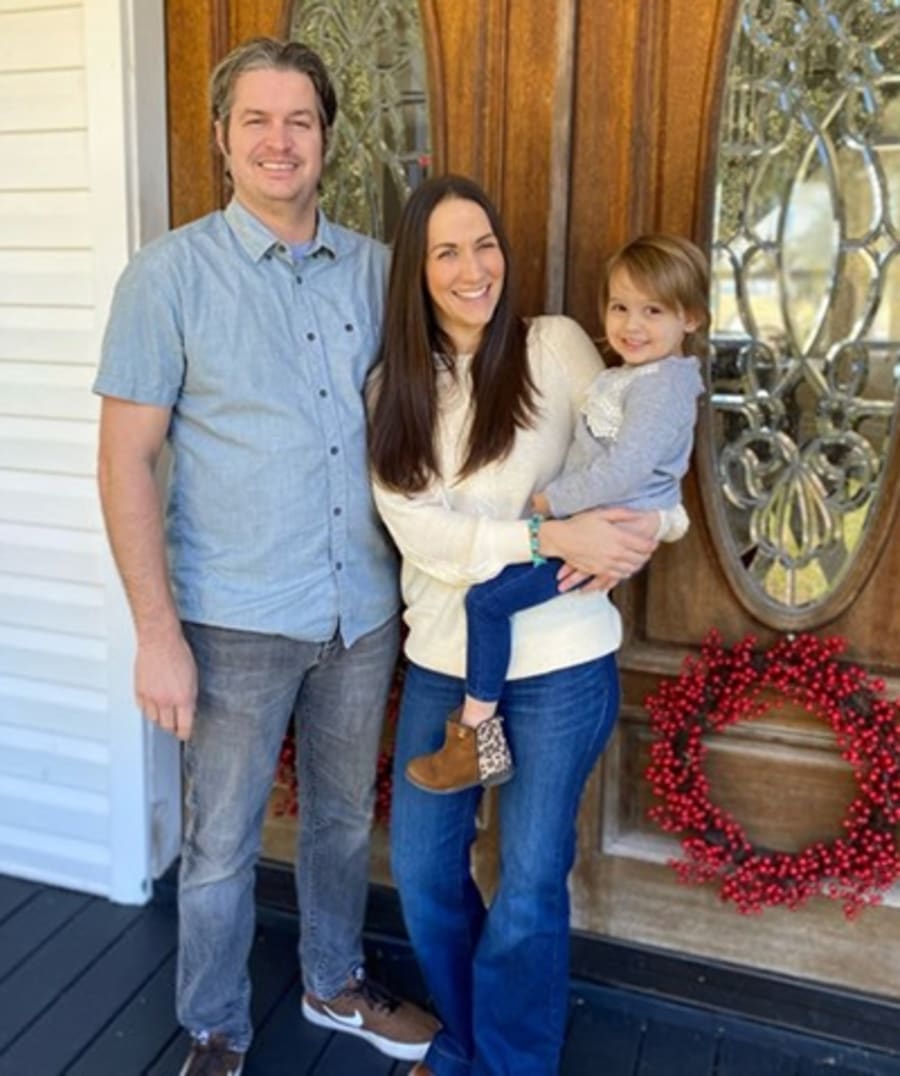A September afternoon in 2020 started like any other for repairman Kevin “Matt” Melogy.
The 36-year-old set off to a call in southwest Jacksonville, business as usual. But while working on his client’s air conditioning unit, Melogy began to notice a tingling sensation on his left side.
Within minutes, the numbness became paralysis, leaving Melogy on the ground, unable to get up.
Luckily, a neighbor saw the ordeal through a window and hurried to see if everything was OK. Believing the repairman had been electrocuted, the good Samaritan alerted Melogy’s client. The duo then called 911 and rushed to Melogy’s side to see how they could help.
Knowing weakness on one side of the body is a symptom of stroke, Melogy’s client checked him for other symptoms such as facial drooping and difficulty speaking. When first responders from the Jacksonville Fire and Rescue Department (JFRD) arrived, they shared his suspicions: Melogy had likely suffered a stroke.
Inside his head
In just 20 minutes, JFRD transported Melogy to Baptist Medical Center Jacksonville’s Stroke & Cerebrovascular Center, a Joint Commission-certified Comprehensive Stroke Center. This certification is awarded to facilities dedicated to the rapid diagnosis and treatment of all types of strokes using cutting-edge resources. Interventional neurologist with Lyerly Neurosurgery at Baptist Health, Nima Aghaebrahim, MD, said Melogy’s speedy arrival saved his life.
“Time is everything when it comes to stroke,” Dr. Nima said. “However, people often do not or cannot recognize stroke symptoms, so they ignore important signs. The quick thinking of those on the ground who recognized the condition and the fast action by first responders to get him to the hospital had a huge impact on his recovery. We know from previous research that even a 15-minute delay in treatment could have led to a different outcome in this case.”
According to Dr. Nima, Melogy’s stroke was caused by a clot that cut off oxygen supply to a large portion of the right side of his brain. Within minutes of arriving at the hospital, Dr. Nima recommended Alteplase, an FDA-approved blood clot-busting medication that helps improves recovery for stroke patients.
To prevent any lasting damage, Dr. Nima also performed a non-invasive, fast-acting emergency procedure called a mechanical thrombectomy to remove the clot and get blood flowing again.
“Restoring blood flow to the brain quickly is a major step that must be taken to decrease the devastating effect of strokes on patients’ lives,” Dr. Nima said.
“As soon as the clot was out, I felt better,” Melogy said. “I can’t believe something like that was inside my head.”
Close to the heart
Although strokes can happen at any age, as a young man with no pre-existing conditions, the cause of Melogy’s stroke was initially a mystery. Following a visit with Baptist Heart Specialists interventional cardiologist Ruby Satpathy, MD, Melogy was diagnosed with patent foramen ovale (PFO), a hole between the heart’s upper two chambers that can lead to strokes.
“PFO is a condition that is present at birth in around one-fourth of people,” Dr. Satpathy said. “Usually, it does not cause issues, but the bloodstream can carry tiny blood clots through the hole when the heart beats, transporting them to the brain. Nearly 50% of patients who have suffered a stroke from an unknown cause also have a PFO. If the condition causes patients to experience symptoms or leads to other issues, the recommended course of action is to close the hole to address the root of the problem.”
According to Dr. Satpathy, minimally invasive structural heart procedures can be performed to close holes in the heart that are present from birth – like PFO and a similar condition, atrial septal defect – without the use of open-heart surgery. These treatments carry smaller surgical risks and enable a fast recovery, helping patients feel better right away
Melogy’s PFO was found to be too small to be closed, but he continues with blood thinners and plans to transform his eating and exercise habits to keep his heart healthy.
Recovery on the brain
After three weeks of rest at home, Melogy said he has had a perfect recovery. He has not needed rehabilitation and has had no lasting side effects from his stroke, thanks to the quick action from his client and the care he received, along with the support of his wife Jeanice at the bedside. He hopes to be back in the field to continue his repair work as soon as possible.

During his recovery, the father of 2 ½-year-old Maddyn found out he has a new baby on the way and knows the quick thinking of first responders, neighbors and stroke team at Baptist Health is the reason he will be able to meet his son when he is born in June 2021.
“I keep thinking how lucky I am,” Melogy said. “The stars aligned for me to be where I am today.”
Time is brain when it comes to stroke. BE FAST and call 911 if you or a loved one experiences any sudden loss of balance, vision changes, facial drooping, arm weakness or speech difficulty. Lyerly Neurosurgery offers expert treatment for stroke and resources for cerebrovascular care. To request an appointment, call 904-388-6518.




